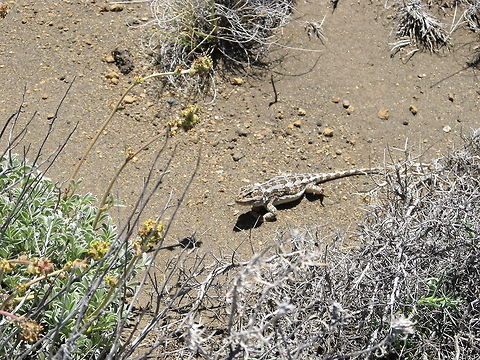
Appearance
Diplolaemus sexcinctus differs from D. darwinii, in having a major size; more than 2 scales between nostril and rostral; mental bordered by no contacting first infralabial and first postmental; temporals uniformly small; supraoculars and supralabials separated by 3-5 or more scale rows; only a distinct gular fold; a very different dorsal color pattern, with the regular black marks on immaculate throat absent. It differs from its nearly relative taxon D. bibronii in having a peculiar six-banded color pattern, always recognizable in all sympatric populations, as well as a bilobate hemipenis differing in shape and ornaments from the larger and apically dilated hemipenis of D. bibronii. Apparently, it differs from the poorly known D. leopardinus in having more scale rows between suboculars and supralabials (2-3 scale rows in D. leopardinus, fide Donoso Barros, 1966); no contacting first infralabial and first postmental bordering mental, a dorsal color pattern contrasting with D. leopardinus pattern, whose large rounded dorsal spots are composed by few dark heavy marks more irregularly distributed in six transverse bands, giving thus the coarse appearance of a leopard skin.Naming
The specific name is easily referable to the six pigmentary bands (latin sex: six, cinctus: girdle) dorsally and laterally shown by these lizards, from shoulder to sacral region.References:
Some text fragments are auto parsed from Wikipedia.
http://reptile-database.reptarium.cz/species?genus=Diplolaemus&species=sexcinctus